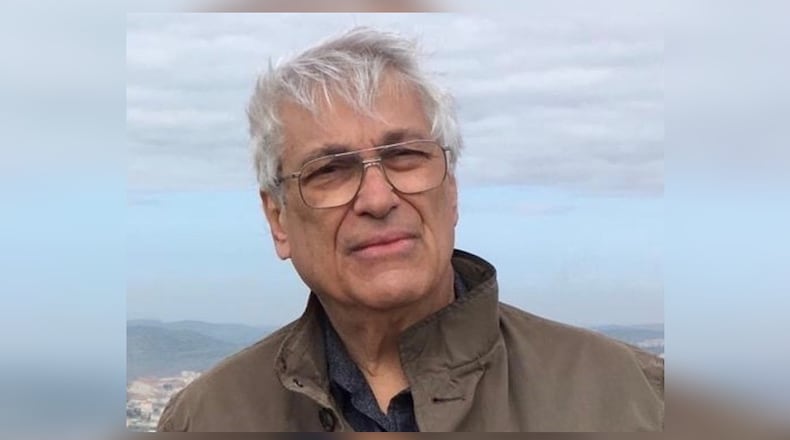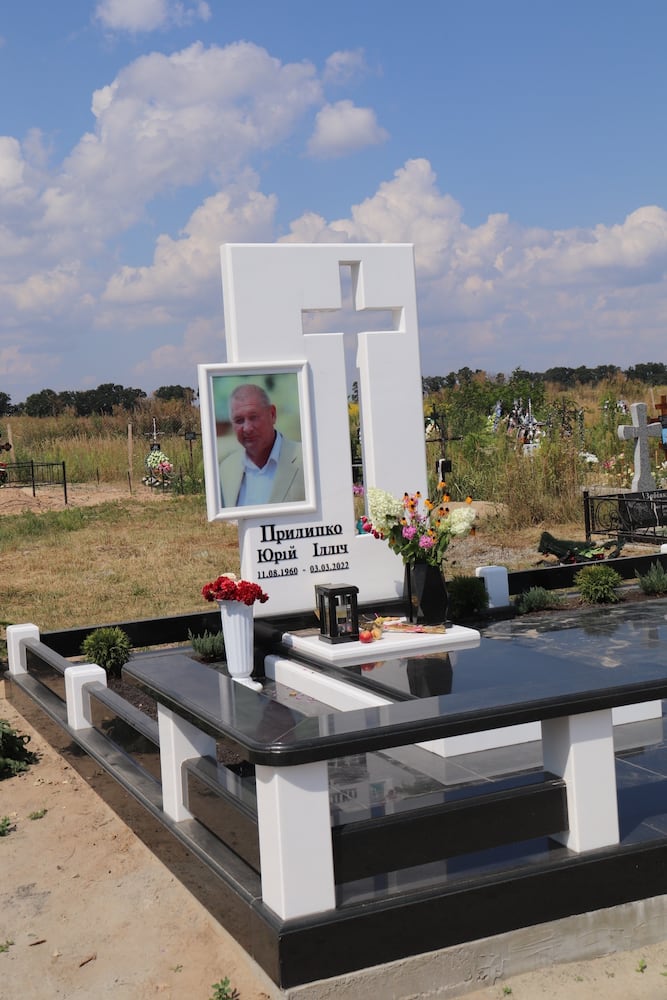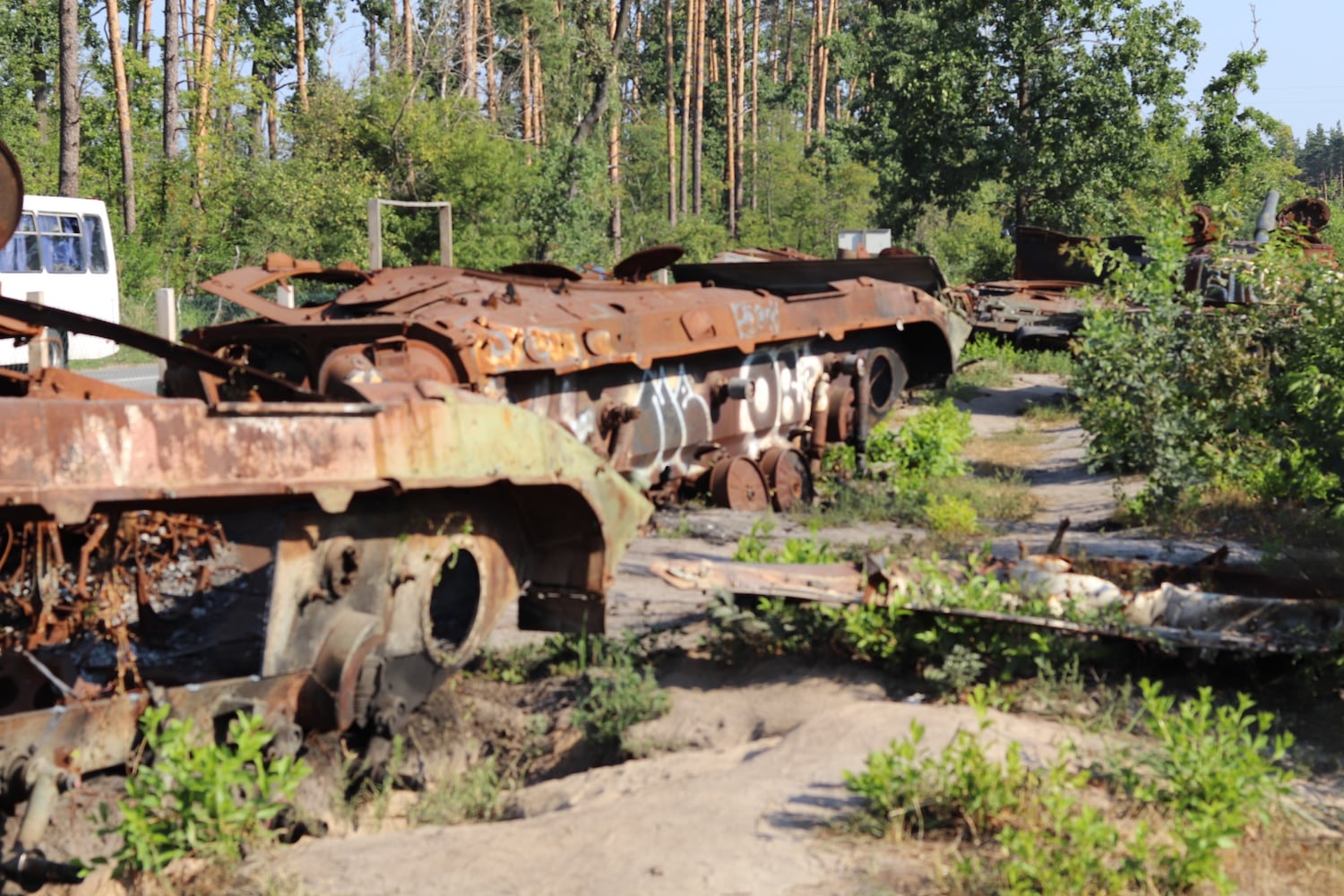The courage of the Ukrainians I met more than justified that support.
Yet, the Republican Party — my ideological home for as long as I can remember and my professional home for the last 45 years — is turning its back, not just on the Ukrainian people, but on any responsibility to defend freedom when threatened by tyranny.
As the Trumpian MAGA world takes hold of the GOP, the party is reverting to a neo-isolationism that has failed us in the past — witness the lead-up to World War II — and is flirting with a proto-authoritarianism that would destroy democratic institutions in pursuit of personal or ideological objectives.
Former President Trump, of course, sets the tone for what happens in his MAGA world. During his CNN Town Hall this past May he refused to even say if he wanted Ukraine to prevail but did complain vociferously about the financial cost of our continued support.
As expected, this attitude is affecting a growing percentage of the party’s congressional ranks, with two of the more prominent examples coming from Southwestern Ohio: Congressman Jim Jordan and Senator J.D. Vance. Both opposed the 2022 aid package, and both adamantly oppose additional significant material support.
But Ukraine cannot survive without our aid. We can urge others to do more but what matters is what gets to Ukraine.
During a June 30 Washington Post interview, the Commander of Ukraine’s armed forces, Lt.-Gen. Valerii Zaluzhnyi pleaded for more supplies, especially ammunition. He said he cannot get the job done without it.
This is not a leader who cries wolf. In the weeks leading up to the Russian invasion, when most were convinced that Ukraine would fall to Putin within weeks if not days, General Zaluzhnyi simply warned the Russians: “Welcome to Hell!” His words were prophetic.
The Republican party’s weakening support for Ukraine has not gone unnoticed in Moscow. The BBC reports that just the potential of Trump significantly reducing support should he regain the presidency gives Putin hope. He just needs to “wait it out.”
While Trump’s MAGA world appears in the ascendancy, its takeover of the GOP is not yet complete. Though only Republicans opposed the 2022 aid package (57 in the House and 11 in the Senate), overwhelming majorities of House and Senate Republicans voted for it.
Dayton’s own congressman, Mike Turner minced no words when on February 24, 2022 he declared, “Vladimir Putin’s invasion of Ukraine is an act of war that warrants a swift and crippling response from the United States and its allies. I stand with the people of Ukraine and continue to support providing arms and intelligence to the Ukrainian people so they can defend themselves.”
Speaker Kevin McCarthy, when congratulated by a Russian reporter this past May for his increasing coolness toward Ukrainian aid, stood firm, at least for that moment, stating unequivocally, “I voted for aid for Ukraine. I support aid for Ukraine.”
Admittedly, even with more aid, we need to ask: How does the bloodshed end?
Though options exist, including leadership change in Moscow and a total Ukrainian victory, most likely there will need to be a negotiated settlement and Ukraine’s leaders will need the wisdom and courage to realize they cannot have all they deserve.
But if the endgame comes about through the collapse of Ukrainian resistance resulting from MAGA Republicans cutting off needed support, it will forever be a stain on the Republican Party and a shameful day for America.
Jim Nathanson, a Dayton-based political and public affairs consultant for 30 years, was Political Director at the Republican National Committee in 1992 and previously had taught political science at colleges in New York and Ohio.
About the Author





